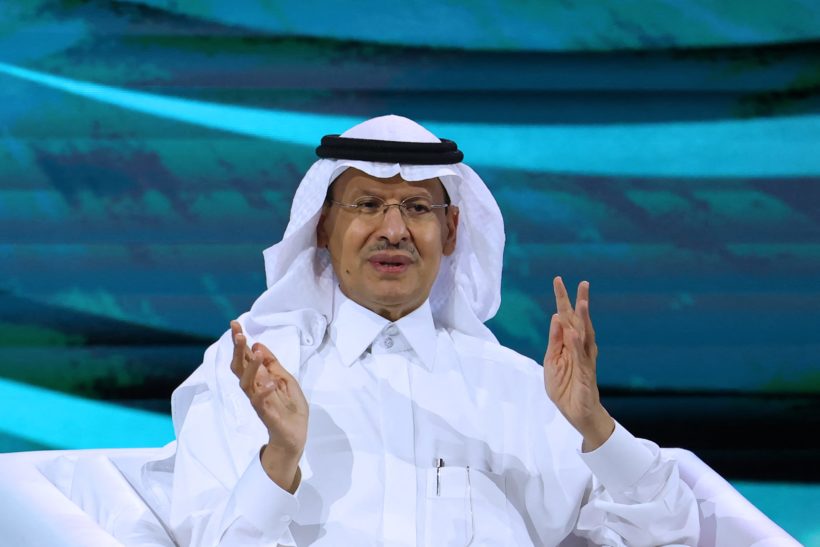
Fayez Nureldine | Afp | Getty Images
The latest round of voluntary crude oil output cuts evidence the cooperation between heavyweight producers and allies Russia and Saudi Arabia, the kingdom’s Energy Minister Prince Abdulaziz bin Salman said on Wednesday.
On Monday, Saudi Arabia said it would extend the 1-million-barrel-per-day production cut it had initially flagged for July into August, while Russia announced a 500,000 barrel-per-day decline in exports next month.
This adds to the just over 1.66 million-barrels-per-day of voluntary drops that some members of the Organization of the Petroleum Exporting Countries and its allies — known as OPEC+ — had first declared in April, then agreed to stretch until the end of 2024 during the coalition’s ministerial meeting of June.
Unlike alliance-wide OPEC+ policy decisions, voluntary production declines do not require unanimous approval and need not be implemented by all group members.
Addressing the latest Riyadh-Moscow drops agreed for August at an OPEC+ seminar in Vienna Wednesday, Prince Abdulaziz said: “In the last move this week, yes, we are all continuing with our voluntary cut, but again, part of what we have had done with our colleagues from Russia was also to mitigate the cynical side of spectators about what was going on with Saudi Arabia and Russia.”
Some questions had surfaced over the extent to which Russia will be honoring its voluntary crude production decline pledges, given ongoing opacity over its refinery consumption and seaborne exports — which are no longer accepted in Europe since December and have been rerouted to Asia. The Russian administration has suspended publishing official statistics for oil, natural gas and gas condensate production until April 2024, according to Russian state news agency Tass.
Implementing a cut on exports, rather than on output, will allow market participants who rely on independent third-party tracking data to verify the extent to which Russia stands by its commitments.
“It was a voluntary cut that was not imposed on them … including delivering, that they will do it from their exports, because it is more meaningful,” Abdulaziz said Wednesday.
In a previous June interview with CNBC’s Dan Murphy, the Saudi energy minister had said that OPEC+ can “absolutely” trust Russia.
“But I always like [the] President [Ronald] Reagan line, ‘Trust but verify,’” he said at the time, stressing the instrumental role of independent sources in assessing production. The OPEC+ group takes guidance from seven independent so-called secondary sources, when investigating the compliance of individual country members with their output commitments.
An OPEC+ delegate, who could only speak on condition of anonymity because of the sensitive nature of the discussions, told CNBC that OPEC+ relations between Moscow and Riyadh appeared good.
Brent prices have so far lingered just above the $75 per barrel threshold, drawing scant support from the voluntary decline announcements, amid a broader focus on demand and macroeconomic concerns over a potential global recession. Brent futures with September expiry were trading at $76.06 per barrel at 12:57 p.m. Vienna time, down 19 cents per barrel from the previous settlement price.
Abdulaziz stressed the producers’ alliance will continue to closely support the market.
“I will tweak what [former European Central Bank President Mario] Draghi was saying, we will do whatever is necessary. Not whatever it takes, whatever is necessary,” he said Wednesday.

